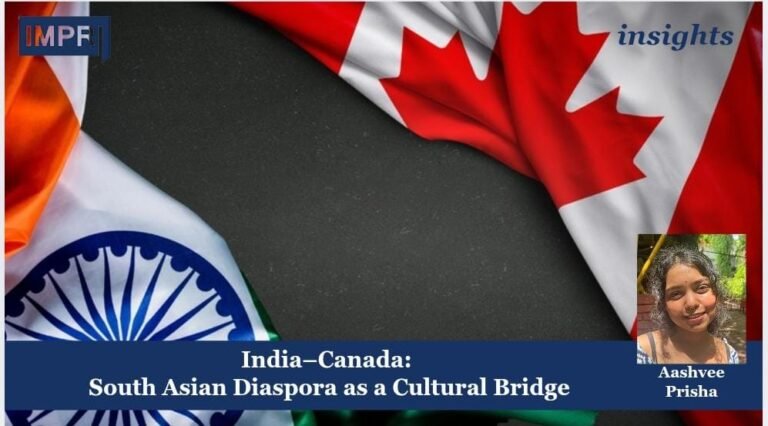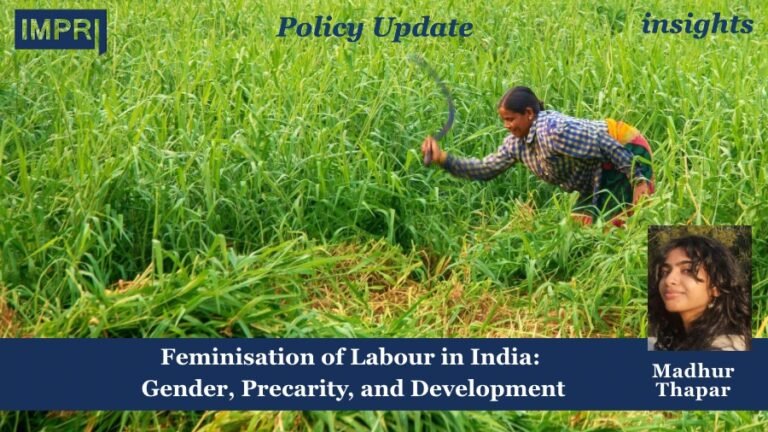Policy Update
Akanksha Baronia
Prime Minister emphasized, “Science is Universal but Technology must be local”.
‘IMPRINT India’ is a Pan IIT and IISc joint initiative to develop a roadmap for research to solve major engineering and technology domains relevant to India. If the institutes of higher learning come together, they can make a difference in a short span of time to the higher education sector in our country. IMPRINT India is a synergizing platform for institutions, academia, industry that encourages research & innovation, making it socially more relevant.

Source: https://share.google/SuLTMYT9wqX0m1EiU
Background
Adopting engineering and technology as a vehicle to address the social needs, the Ministry of Human Resource Development has formulated a catalytic scheme for Impacting, Research, Innovation and Technology(IMPRINT) as a pan india initiative on November 5, 2015. The programme builds around the great research talent and highly equipped and promising infrastructure of the IITs and the IISc. With an aim of achieving inclusion, the programme has currently also encompassed the Centrally Funded Institutions(CFIs) and in the future is poised to cover all the academic and research institutions of the country.
Functioning
The focus of the IMPRINT initiative:
- Healthcare, Computer Science and ICT, Advance Materials, Water Resurces and River systems, Sustainable Habitat, Security and Defence, Manufacturing, Nano technology Hardware, Environmental Science and Climate Change, Energy Security.
- To identify areas which have immediate relevance to the society requiring innovation.
- To direct the scientific research into the identified areas.
- To ensure higher funding support for research into these areas.
- To measure the outcomes of the research effort with relevance to impact on the standard of living in the rural/urban areas.
Performance
IMPRINT-1(Phase 1) funded 142 projects totaling around 318.7 crore by the end of that phase.
Transitioned into IMPRINT-2, backed by another 1000 crore, supporting approximately 425 projects with individual grants up to 2 crore each.
Designed to align academic research with societal needs, ensuring translational impact and tech self reliance.
Centralized monitoring via a knowledge portal for PI progress reporting, including commercialization pathways.
By one year post launch, 31 ministries/departments co founded 229 projects totalling 595.89 million.
The research areas will also dovetail with the ‘Make in India’ campaign to boost indigenous manufacture.

Source: https://images.app.goo.gl/kRESbXBYAfabnUiP8
Emerging Issues
- Bureaucratic issues: Bureaucracy was often delaying projects and discouraging institutes from pursuing them, hence the need for a one stop shop.
- Funding issues: A year after its high profile launch, however, IMPRINT has hit an unlikely roadblock. As of today, only 79 out of the 259 projects identified for IMPRINT have full funding.
- Process was flawed: The process of selecting the projects under IMPRINT was rigorous. The initial call for proposals brought in 2600 ideas from across the 23 Indian Institutes of Technologies(IITs) and the Indian Institute of Science, but after a stringent three stage evaluation, nearly 90% were rejected, leaving only 259.
- Gap between industry engagement and commercialization: A key aim translate research into market ready products, yet industry uptake remains cautious. One observer remarked that ministries were”still wary of making the .leap from academic research to product development”.
Way Forward
Strengthen industry linkages and commercialization: Way forward needs to be strengthening technology transfer to convert it in market ready product. Evolve new technology transfer models for enabling technology diffusion to industry and stakeholders.Facilitate building capability and competence in identified technology thrust areas in the various HEIs and universities in order to plug the demand supply gap of human resources in specific areas of need. Align the programmers and projects with the needs of various industry sectors and the States of India in order to achieve end user translation.

Source: https://dst.gov.in/slider/dst-programmmes-boosting-make-india-initiative
References
- Imprint India Launched by the President of India at the Visitor’s Conference https://share.google/CpLmEMPGxHv8spIK1
- India bioscience https://indiabioscience.org/columns/indian-scenario/imprint-accelerating-research-and-innavation?utm
About the Author
Akanksha Baronia is pursuing a postgraduate degree in Economics from Jawaharlal Nehru University, New Delhi. She is a research intern at IMPRI.
Acknowledgement
The author sincerely thanks Aasthaba Jadeja for their valuable contribution,
Disclaimer: All views expressed in the article belong solely to the author and not necessarily to the organisation.



